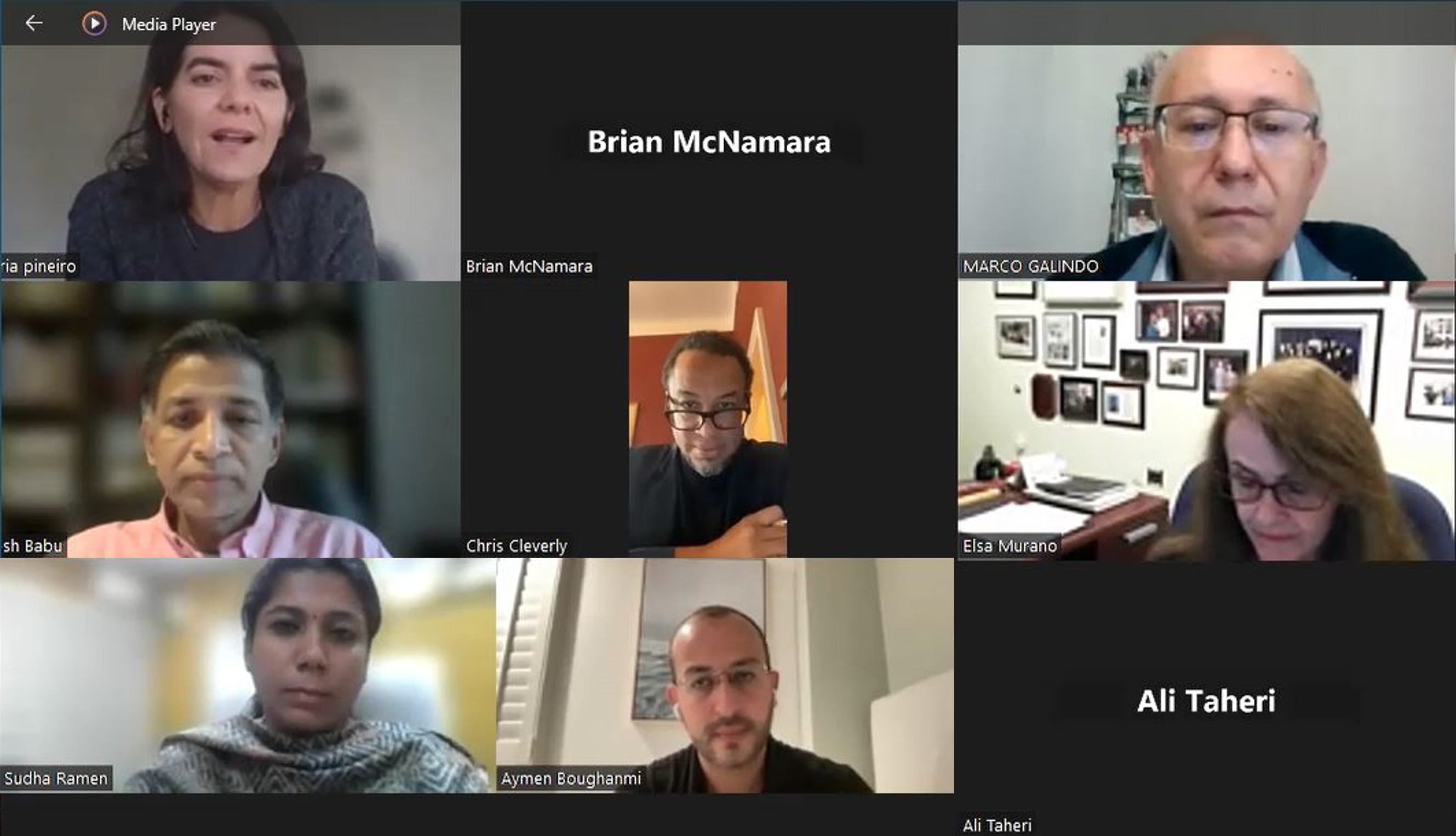Climate change poses serious challenges for food systems around the world. Over the coming decades they must produce more food to sustain the growing global population—while reducing carbon emissions and becoming more resilient to climate impacts such as extreme weather events and increased droughts. What are the most effective ways to bring about this food systems transformation at the regional, national, and local levels?
This was the theme of an October 18 virtual side event at the Norman E. Borlaug International Dialogue, Climate Action for Resilient Food System Transformation—Policy and Institutional Insights from Asia and Latin America and the Caribbean. The event, co-organized by IFPRI, the Interamerican Institute for Cooperation on Agriculture (IICA), and the U.S. Agency for International Development (USAID), brought together researchers, policymakers, and practitioners to share insights about opportunities to harness technological innovations and institutional mechanisms for climate actions resulting in inclusive, climate resilient, and sustainable food systems.
Moderator Valeria Piñeiro, IFPRI Senior Research Coordinator, set the stage by noting that achieving global commitments under the United Nations Conference on Climate Change (UNFCCC) will depend on “strengthening policy systems and institutional actions to translate [commitments] to action.” Panelists emphasized that programs such as the USAID-funded Comprehensive Action for Climate Change Initiative (CACCI), can contribute to such policy and institutional reforms.
Economic sustainability
Aymen Boughanmi, Chairman of the Titane Energy Group, noted several ways his company is developing and scaling sustainable innovation—including developing carbon capture technology that utilizes algae to sequester emissions while also producing feed for aquaculture and working on scaling processes to rapidly compost food waste in Colombia and Taiwan. These projects reflect the need for economic sustainability in private sector innovations for climate action, Boughanmi said—specifically, private actors need the right incentives to adopt new technologies and practices. “Everything must be profitable in order to be sustainable,” he said.
Marco Galindo, Director of Economic Studies at the National Agricultural Council of Mexico, noted that policymakers have an important role in creating sustainable business opportunities, and that many country development programs should “focus on commercial agriculture and promote productivity.” Ultimately, such initiatives can make food systems more efficient, improving food security and resilience while reducing the exploitation of natural resources.
Bottom-up approaches
Chris Cleverly, President of Tingo Group, also highlighted the importance of incentive mechanisms, focusing on how these tools can be applied to support climate action among small and medium-sized enterprises (SMEs), smallholder farmers, and similar stakeholders. Creating systems to pass carbon credits on to farmers could provide a strong incentive for the adoption of more sustainable land management and agricultural practices, he said. He also emphasized that stakeholders working to build sustainability need to focus on strengthening communication and engagement with producers. “Get to the ground level, with individual people, finding systems for them to build out” he said. Ultimately, Cleverly argued, promoting this form of inclusion will foster an environment where individuals at all levels can buy into the idea of sustainability and play an active role in driving change.
Multi-stakeholder engagement
Inclusive bottom-up approaches are tied to the broader theme of multi-stakeholder engagement, which can facilitate the development and implementation of sustainable innovation while ensuring that the benefits of such changes are distributed equitably. “Technology is going to be the big change with respect to agriculture and food systems,” said Sudha Ramen, Member Secretary of the Tamil Nadu State Planning Commission. In India, she said, interventions on irrigation, crop insurance, credit systems, and Minimum Support Price (MSP) system support, can empower vulnerable populations to deal with climate impacts. At the same time, she said, new technologies have varying political, social, and economic impacts across different food system actors, thus it is critical to engage with stakeholders throughout the processes of research, development and scaling. Traditional knowledge should also be incorporated into the design and application of technology and decisions about R&D investment, Ramen said. Government support to promote sustainable practices and in protecting land use rights are also needed to ensure an equitable and inclusive transition to more sustainable production.
Bringing about real action: The CACCI approach
The panel discussion revolved around a central question: How can national commitments and adaptation plans under the UNCCC be translated to action on the ground? Action must start at the policy level and then translate into strategies and related investment. “There needs to be a framework, which can help in guiding/translating policies into action on the ground- as encapsulated in CACCI,” said Suresh Babu, IFPRI Senior Research Fellow. The initiative facilitates the process of assembling key players to coordinate mitigation and adaptation activities through multilateral forums.
In addition to this panel, CACCI researchers are hosting similar events in the Asia and Latin America and the Caribbean (LAC) regional Climate Weeks, COP28, and other international venues that promote South-South Dialogue. Beyond this, CACCI engages directly with governments and private actors in countries around the world to build institutional and human capacity for pursuing climate goals. Margaret Zeigler, IICA U.S. Representative, noted that through this project and similar initiatives, her organization is collaborating with ministries of agriculture across LAC to leverage the potential of agrifood policy for emissions mitigation, environmental protection, and climate change adaptation.
Brian McNamara is a Program Coordinator with IFPRI’s Markets, Trade, and Institutions Unit; Nandita Srivastava is a Research Analyst with IFPRI’s Development Strategies and Governance Unit.







